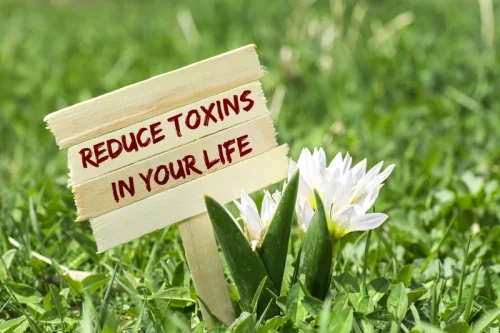
Those with late-stage kidney disease may need to restrict fluids. Ask your healthcare practitioner how much water you should drink. The Centers for Disease Control and Prevention (CDC) reports that nearly two-thirds of American adults drink alcohol. A concerning portion—about 1 in 4 drinkers—binge drink at least once per year, consuming five or more drinks within a short time frame. Binge drinking can lead to acute kidney injury (AKI), a sudden drop in kidney function that can sometimes lead to lasting damage.
- For example, alcohol causes dehydration, which decreases blood flow to the kidneys and makes it more difficult for them to do their job.
- For example, people who drink a glass of wine per day may never experience kidney issues, while chronic alcoholics and alcohol abusers can develop kidney problems in a matter of months or years.
- When alcohol dehydrates (dries out) the body, the drying effect can affect the normal function of cells and organs, including the kidneys.
- The kidneys are very sensitive to pressure changes, and big swings in blood pressure or prolonged high blood pressure can damage them.
- Chronic, long-term use of alcohol can have many far-reaching effects on the brain and can even alter the brain’s structure and function in the limbic system, cerebellum and cerebral cortex.
How helpful was this content?
Laube and colleagues (1967) suggested that both cellular enlargement and cell proliferation contribute to such nephromegaly. The kidneys continuously perform their tasks of purifying and balancing the constituents of the body’s fluids. Although resilient, the kidneys can deteriorate as a result of malnutrition, alcohol abuse or dependence, or liver and other diseases. Healthy kidneys are vital to the function of all the body’s organs and systems. A 2022 study found that those who eat a lot of processed foods had a 24% higher risk of kidney disease. These foods are heavily processed and packed with artificial additives, added sugar, refined carbs, unhealthy fats, and sodium, but are low in fiber, protein, and essential nutrients.

Do Artificial Sweeteners Cause Cancer? Facts of Aspartame, Sucralose and Cancer
In particular, studies have shown that alcohol can contribute to liver, breast, and colorectal cancers (28). The relationship between alcohol and kidney cancer remains unclear. This is due to various factors that influence the risk of kidney cancer, including the does alcohol kill your kidneys amount and duration of alcohol use, individual responses, and other lifestyle factors. Long-term alcohol use can have significant and lasting effects on the kidneys. One of the primary long-term effects is the development of alcohol-induced kidney disease (12).
Health Conditions

Moderate beer consumption may have some benefits, such as a lower risk of kidney stones due to its water content and nutrients. However, excessive intake can lead to dehydration and strain kidney function, potentially harming overall health. Alcohol serves as a diuretic, increasing urine output and causing your body to lose essential fluids. This dehydration can strain your kidneys, which work hard to filter blood and remove toxins.

A 2017 study examined the connection between alcohol misuse and kidney injury. Long-term, heavy alcohol use can lead to acute kidney injury, chronic kidney disease, and kidney failure. Moderate alcohol use may have no relation to kidney disease, but you should limit alcohol intake to protect your kidneys and overall health. Some of the first signs of kidney damage from alcohol are increased urination frequency, changes in urine, weakness, and fatigue. Recent studies indicate beer can impact kidney function both positively and negatively.
- Below, we separate fact from fiction when it comes to your overall health and alcohol.
- Chronic kidney damage is often progressive, requiring dialysis every one to three days to remove toxins that build up in your body and keep you alive.
- According to the United Kingdom’s National Health Service (NHS), a person should consult a doctor if they experience symptoms consistent with kidney disease.
- When experts talk about one drink, they are talking about one 12-ounce bottle of beer, one glass of wine (5 ounces), or one shot (1.5 ounces) of “hard liquor.”
Dehydration can hinder your kidneys’ ability to function effectively, impacting overall health. Chronic alcohol consumption may cause both fluid and solutes to accumulate, thereby increasing the overall volume of body fluids. In turn, such expansion of body fluid volume can contribute to high blood pressure, a condition often seen among chronic alcoholic patients. Interestingly, age makes a difference in how rapidly the body escapes alcohol’s ADH-suppressive effect. People older than age 50 overcome suppression of ADH more quickly than their younger counterparts do, despite reaching similar serum electrolyte concentrations after alcohol consumption.
- Our team of skilled and experienced addiction specialists is here to provide the support, guidance, and personalized treatment you need to embark on your journey to recovery.
- Ask your healthcare practitioner how much water you should drink.
- Ultrasound showed no significant abnormalities in kidney structure.
- This abnormality may reflect the severity of liver disease, but the available data do not allow correlation of kidney impairment with the degree of clinical signs of liver disease, such as ascites or jaundice.
- The condition results in the accumulation of toxins and waste products.
Pain, a common complaint, is frequently felt in the flank area, the region located on the sides of the body, Halfway house between the ribs and the hips. This pain can vary in intensity, from a dull ache to a sharp, stabbing sensation. The duration of the pain can also fluctuate, lasting from a few hours to several days.
Can You Drink Alcohol with Chronic Kidney Disease?
It is hoped that future investigations will focus on this important subject area. Low blood levels of phosphate commonly occur acutely in hospitalized alcoholic patients, appearing in more than one-half of severe alcoholism cases. Alcohol impacts many parts of your body, including your kidneys. Occasional drinking, one or two drinks now and then, usually doesn’t harm kidney function. Excessive drinking, more than four drinks a day, can seriously affect your health, especially if you have kidney disease. Drinking too much alcohol can negatively affect kidney function.
